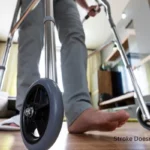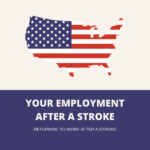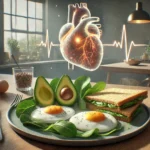Outta Nowhere: Spotting Stroke Red Flags Before Time Runs Out
Imagine this: you’re moving through an ordinary day, sharing a laugh with a friend, when suddenly your face feels strange. One side sags, turning your smile uneven. Your arm grows oddly heavy, and words you want to say twist out of reach. Confusion sweeps over you as your surroundings seem to tilt.
These aren’t random quirks — they signal that something internal has shifted. When oxygen and vital nutrients stop reaching brain tissue, consequences can become profound and life-altering. This can strike anyone, at any moment, often without any warning signs. Noticing such changes quickly can shape outcomes dramatically, determining whether someone regains abilities or confronts lasting difficulties.
Picture yourself as a health sleuth on the lookout for your own well-being. Your body’s always tossing out tips, and a major health scare murmurs its coming through a bunch of signs. Don’t turn a blind eye to these hints. Let’s bust this case wide open, equipped with the crucial know-how of these health red flags.
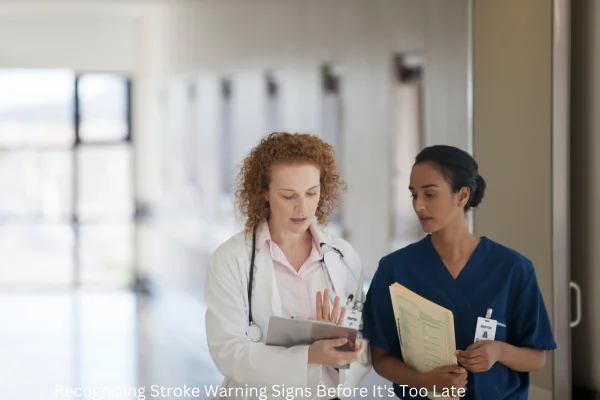
FAST Five: A Rapid-Action Toolkit
Remember this quick guide—it’s designed to spot critical alerts. Each part points out an important indication that something isn’t right:
| FAST Symptom |
| Face drooping |
| Arm weakness |
| Speech difficulty |
| Time to call emergency services |
F – Face Drooping
Picture glancing in a mirror and noticing one side of your expression failing to match its opposite half. Maybe a smile tilts unevenly, or one eyelid sits lower than expected. Such asymmetry goes far beyond a cosmetic quirk — it can signal that facial muscles on one side aren’t working as usual. If one side feels weaker, heavier, or slower to move, that shift may indicate something unusual unfolding inside your system. Ignoring that change isn’t wise; quick action can influence outcomes in significant ways.
A – Arm Weakness
Try raising both arms straight forward. Can you keep them steady and level? If one arm dips, feels heavy, or refuses to cooperate like its counterpart, this may hint at a serious interruption in how signals travel from your brain to your muscles. Uneven movement — especially alongside other odd changes in how your system reacts — deserves immediate attention. Such a sign can carry urgent meaning.
S – Speech Difficulty
Do your words come out tangled, slurred, or unclear? Maybe your mouth refuses to coordinate smoothly, or you struggle to locate words sitting on your tongue. You might even find it tough to understand someone speaking to you, as if their voice has turned muffled or distant. When communication suddenly becomes challenging, that shift acts as a loud warning that something serious may be unfolding in your head.
T – Time to Call 911
Do not delay. Rapid action matters enormously. Each passing minute can influence long-term outcomes. If any FAST sign appears — even briefly — call emergency services right away. Prompt response can safeguard vital abilities and prevent lasting complications.
Beyond Big Five: Unmasking Hidden Disguises
Even beyond main five indicators, unexpected problems can still appear without warning. Staying alert for additional alerts is crucial, as some may call for immediate action.
Unexpected Vision Trouble
If vision shifts suddenly — blurring, doubling, or fading in one eye or both — ignoring such change can be risky. Sudden distortion may appear like a light flicking on and off, making focus difficult or causing surroundings to feel warped. Even if vision returns quickly, abrupt disruption deserves careful attention. Such instability in sight can hint at a serious internal issue requiring swift response.
Unsteadiness or Coordination Trouble
You may notice wobbling, as if ground under your feet isn’t steady, even while standing still. Surroundings may swirl or tilt, making balance difficult. Some describe this as losing orientation without any clear cause. Simple actions — walking a straight path, rising from a chair, or standing without shifting — can become unexpectedly challenging. Episodes like this often signal an internal disturbance demanding prompt action to avoid worsening complications.
Intense Head Pain
Picture an explosive, piercing head pain arriving out of nowhere — no trigger, no slow build, no familiar pattern. This isn’t ordinary discomfort; it can feel like a lightning bolt, sudden and overpowering. Many recount it as most extreme pain ever experienced. When paired with confusion, blurred vision, or unstable balance, such agony may signal something urgent unfolding inside your system. Do not wait it out — contacting trained responders right away can shape outcomes dramatically.
Tingling or Loss of Sensation
Tingling or complete loss of feeling in areas such as cheeks, arms, or hands may suggest something concerning is affecting your nervous pathways. Numbness that favors one side, arrives abruptly, or feels like skin “falling asleep” without any awkward position involved deserves immediate notice. Observe closely if this sensation persists or expands, as it can point toward an underlying problem requiring rapid evaluation.
Sudden Disorientation or Memory Lapses:
You might be talking with someone and find yourself blanking on what you were about to say—or even forgetting who you’re speaking with. Simple tasks that usually come naturally, like remembering a loved one’s name or following a straightforward instruction, can suddenly feel like solving a complex riddle. It’s as if your mind hits an invisible wall, and processing even familiar information becomes difficult. This type of mental fog can appear unexpectedly, leaving you disoriented in settings you know well. When cognition starts acting unpredictably like this, it often indicates that something unusual is happening internally. It’s more than mere forgetfulness—it’s a warning that your mental system is experiencing a disruption that deserves immediate attention.
Keep in mind, y’all, that symptoms can differ from person to person and they might not all show up. Even if you spot just a couple, don’t brush ‘em off. When we’re talkin’ about these warning signs, it’s always better to play it safe. Don’t be sorry later.
Act Fast, Save Lives: Your Guide to Response
It’s a medical crisis. Time turns into an adversary, and swift action becomes your strongest weapon.
Dial 911 without delay.
Don’t second-guess it, and definitely don’t wait for anything to escalate. Every moment you pause could lead to more damage. Acting quickly gives emergency teams a better shot at stepping in before things get worse, and could mean the difference between a full recovery and a lifelong setback.
Stay calm and focus closely on guidance from an operator on your call. That individual carries training to walk you through each step, explaining exactly which actions come next. Whether you assist someone nearby or manage a crisis on your own, following those instructions can improve outcomes significantly. Keep your call active, speak clearly, and rely on steady direction offered to you — guidance remains in place until trained responders arrive at your location.
Avoid getting behind any wheel — whether you or someone nearby faces a sudden physical shift. In moments like this, swift choices matter, and attempting to manage everything alone can worsen an already fragile situation. Call for emergency assistance right away and allow trained responders to take control. They carry tools, experience, and equipment needed for safe, efficient action during urgent moments. Trying to drive yourself or delaying action can create serious risks and dangerous outcomes.
Gather any important background details regarding your condition. If you know of ongoing diagnoses, prescriptions you currently take, or any past reactions to medications, make sure to share that information with emergency personnel. Such clarity allows responders to act faster and make strong decisions in moments when every second carries weight.
Prevention is Key: Building a Stroke-Resilient Life
Unexpected crises can strike without warning, yet certain everyday habits quietly raise risk in significant ways. By reshaping routines with smarter choices, you can lower risk in a meaningful, lasting manner.
Maintain a steady, balanced size
Carrying excess weight places heavy strain on your heart along with major vessels. Rising pressure inside arteries raises chances of serious disruptions, especially regarding blood flow reaching brain tissue. Choosing nourishing meals, staying active on most days, and limiting heavily processed items can guide your system back toward safer ranges, gradually lowering risk.
Keep blood pressure within safe limits
When numbers stay high for long stretches, arteries endure intense strain. Picture water forced through an old, narrow hose — pressure builds, walls weaken, and damage follows. Ongoing stress can undermine vessel strength and raise chances of sudden complications affecting brain circulation. Maintaining readings within safe limits allows your system to function more smoothly and reduces odds of abrupt crises. Small shifts — trimming salt intake, adding consistent movement, easing stress — can create steady improvement.
Keep cholesterol within optimal range
When cholesterol climbs too high, it acts like scattered debris dumped onto a busy roadway — slowing everything, causing congestion, and restricting movement. Inside your circulatory system, buildup along vessel walls narrows pathways, making free-flowing movement of blood much harder. Over time, this narrowing can cause blockages that cut off oxygen supply to critical areas. Maintaining cholesterol within recommended limits keeps channels open, encourages smooth circulation, and lowers odds of sudden complications.
Fuel your system with smart choices
Fill each plate with vibrant produce, wholesome grains, and lean sources of nourishment such as fish, chicken, or legumes. Aim to cut back on items loaded with saturated or trans fats, reduce salty snacks, and skip sugary drinks that undermine long-term wellness. Swapping in these better options supports stronger daily function and keeps your entire system running with more ease.
Is there an early warning test?
There’s no standard early warning test like a regular carotid ultrasound for this, but a few check-ins and lifestyle choices can help you stay ahead of the game. When you visit your doc, they might look at your blood pressure, cholesterol, and personal history to get a better picture. Eating well, staying active, and steering clear of smoking can really cut your risk. Bottom line—have a chat with your doctor to put together a plan that fits your needs.
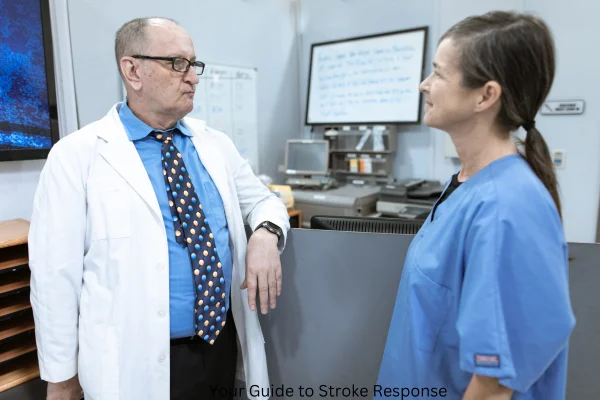
How does your body warn you?
Human systems often send quiet signals when trouble may be forming — almost like an internal warning mechanism operating silently in background. No loud alerts appear, yet subtle shifts can hint that something beneath your surface isn’t functioning as it should. Staying attentive and observant becomes essential.
Watch for unusual changes such as one side of your face sagging, difficulty lifting an arm or leg, speech turning slurred or tangled, or dizziness arriving out of nowhere. You might also face sudden confusion, blurred vision, or a head pain striking with intense, rapid force.
These aren’t occurrences to ignore or delay—they’re alerts from within, urging immediate attention. The sooner action is taken, the higher the chance of a full recovery. Stay observant, listen to your intuition, and if you notice unusual changes or sensations that don’t make sense, take prompt action and contact trained professionals without waiting.
| Symptom | Description |
| Sudden numbness or weakness | This can occur in the face, arm, or leg, often on one side only. |
| Trouble speaking or understanding speech | This may include slurred speech, difficulty finding words, or confusion. |
| Abrupt Changes in Vision | This could be loss of vision in one or both eyes, blurred vision, or double vision. |
| Dizziness or balance problems | You might notice your footing wobbling or that maintaining an upright stance becomes unexpectedly difficult, as if the floor itself is shifting beneath you. |
| Severe headache | An intense, sharp headache that appears without an obvious reason can indicate a critical problem, particularly if it comes along with other unusual physical or mental changes. |
| Other possible signs | These can include nausea, vomiting, difficulty swallowing, fainting, or seizure. |
What is the first stage of a stroke?
| Stage | Common Symptoms |
| Acute Stage (First 24-48 hours) | – Facial drooping/numbness – Arm / leg weakness or numbness (one side) – Speech difficulty / slurring – Vision problems – Dizziness / balance problems – Severe headache – Flaccid paralysis (complete loss of movement) on affected side. – Decreased sensations like touch and temperature on affected side. – Confusion or difficulty understanding speech.- Loss of consciousness (not always). |
Imagine this first stage like a moment when something disrupts blood flow inside your brain — similar to a sudden roadblock thrown across busy highways inside your head. A common culprit, ischemic in nature, occurs when a clot stops an artery and cuts off oxygen reaching crucial tissue. Understanding this starting point matters enormously, and noticing early shifts can guide you toward rapid action.
If you or someone nearby feels sudden odd sensations, grows confused, struggles to speak, or shows any out-of-ordinary signs, do not wait — call emergency services right away. Every second carries weight.
What foods should be avoided?
No single list fits every person, yet certain foods create far more harm than good — especially when your aim is keeping your system running at its strongest. Some choices can quietly trigger trouble over time, particularly when eaten often or in large portions. Here’s a detailed breakdown of items worth reducing or avoiding entirely:
| Category | Tips for Substitution |
| Saturated Fat & Cholesterol | Choose lean protein (chicken, fish, beans), low-fat dairy, baked or grilled foods, olive oil, whole grains |
| Salt | Focus on fresh, whole foods, cook at home with herbs and spices, choose low-sodium options |
| Added Sugar | Opt for water, unsweetened tea or coffee, fruits, nuts, dark chocolate |
| Alcohol | Limit alcohol intake or talk to your doctor about safe levels |
Salty Snacks: Why Cutting Back Makes Sense
Crispy munchies — chips, pretzels, flavored crackers — offer that addictive crunch-and-salt combo that keeps you reaching for more. Yet here’s a catch: high sodium levels can throw internal pressure systems off balance. When pressure inside arteries climbs too high, your heart works far harder, creating conditions that increase long-term risk.
If you want to regain stability or feel more in command of daily rhythm, reducing salty snacks can create surprising impact. Swap chips or pretzels for unsalted nuts, crisp veggie slices with hummus, or lightly seasoned air-popped popcorn. At first, these swaps may seem minor, yet over time they bring noticeable improvement in daily resilience and steady energy.
Processed Foods
Grab-and-go meals may look incredibly convenient, yet many carry heavy amounts of salt and undesirable fats. Keeping an eye out for highly processed items helps you avoid choices that quietly undermine long-term strength and vitality.
Sugary Treats
Enjoying something sweet now and then feels natural — craving dessert after a meal or during a quiet moment is simply part of life. Yet when sugary snacks slip into daily routine, they gradually interfere with energy levels, metabolism, and overall performance. Tasks begin to feel heavier, and steady focus becomes harder to maintain.
Too much sugar can trigger weight gain, drain energy, and leave you sluggish. If you aim to stay consistent with your wellness or work your way back toward feeling strong again, cutting back on cakes, candies, sodas, and pastries is a smart strategy.
Instead of grabbing a handful of cookies, reach for naturally sweet choices such as sliced fruit or a small square of dark chocolate. You don’t need to give up treats entirely — just stay mindful of portions and frequency. Balanced choices keep your energy steady and your day running smoother.
Heavy, Oil-Soaked Foods
Deep-fried bites or thick, marbled meats can throw your entire system into overdrive. Excess oil and saturated fat create internal congestion, forcing everything to work harder. Personally, I lean toward lighter options such as grilled chicken or fish, prepared with methods that avoid greasy buildup. Small shifts like this add up quickly, leaving you feeling lighter, energized, and far more efficient — like an engine running on cleaner fuel.
Alcohol
An occasional glass of wine can feel relaxing, yet frequent drinking or high intake disrupts internal balance. Overuse strains circulation and undermines pressure stability. To maintain steadiness and mental clarity, limiting consumption and pacing yourself makes a real difference. Moderate habits allow internal systems to function smoothly, keeping you alert, grounded, and fully in control throughout your day.
Closing Thoughts
Well, there ya have it, folks — we’ve taken a close-up look at clues your system offers when something unusual begins unfolding inside your brain. Spotting these shifts works like a roadmap for navigating sudden, unexpected moments. Don’t keep this insight to yourself — pass it along to friends and family. Awareness of such indicators can create major impact when swift action becomes essential.
One thing stays clear — our system sends quiet warnings whenever something drifts out of alignment. Key lies in noticing those signals instead of brushing them aside. I’m keeping senses sharp, staying alert to any unusual shifts, and choosing actions that keep me proactive. Hope you’re doing same out there. Stay vigilant, protect your well-being, and here’s to maintaining balance and resilience. Stay steady, partner!
